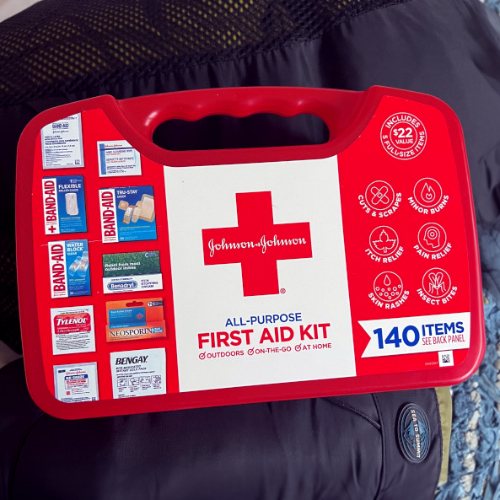
Reading Hospital recognizes National Preparedness Month, which raises awareness about the importance of being prepared in the event of an emergency or disaster.
The month of September is National Preparedness Month, which includes planning for emergencies, as well as natural disasters like floods, hurricanes, or earthquakes. Here are some suggestions to help you create a safe and effective plan that you can update annually.
Reading Hospital encourages families and community members to plan. Families should develop their own emergency plan and practice it together. Establish a plan to shelter in place and stock up on supplies in advance such as water, canned food, batteries, candles, and diapers if needed. Cards and board games can come in handy, too. When severe weather is imminent, supermarkets can become crowded, with essential items selling out quickly. Prepare well in advance by stocking up on enough supplies to meet your family's needs for at least three days and up to 14 days.
Have an emergency supply kit. A first aid kit, a flashlight with spare batteries, baby supplies, pet supplies, a manual can opener, a fire extinguisher, sleeping bags, a battery-powered radio, plastic bags, medical devices, and prescription medications are a few critical items to keep on hand. Be sure to check the expiration dates on food items, water, and the fire extinguisher in your kit at least once a year.
Plan to act. Have escape routes mapped out and practice using them with your family at least once a year. It is a good idea to determine a way to send and receive messages to family members not living together so that communication can occur in times of need. Consider how you would evacuate with your children, as well as how you would reunite if you were separated, as part of your evacuation strategy. Make arrangements for the care of your animals as well. Ensure everyone knows where they need to go to be safe and what their role is by practicing action routines every year.
Additionally, know how to turn off your gas, electricity, and water, should it become necessary.
Keep supplies in your car. Reading Hospital strongly recommends an emergency kit for your car. A first aid kit, batteries, flashlight, battery-powered radio, bottled water, shovel, energy snacks, jumper cables, maps, and roadside flares are a few things that can help keep you safe if you ever find yourself stuck or stranded on the road.
Rent an AED for free. The Friends of Reading Hospital is pleased to offer the HeartSAFE Berks County AED Loan Program. If you are an event organizer or planning a large group event in Berks County, you can request a free AED. Reading Hospital strongly recommends that everyone take advantage of this offer.
HeartSAFE Berks County aims to improve the survivability of sudden cardiac arrest victims in the county. Citizens are encouraged to get involved and be ready to use CPR and an automated external defibrillator (AED) to save a life. An AED, or automated external defibrillator, is used to help those experiencing sudden cardiac arrest. Chances of survival for anyone in our community increase to 30 to 70 percent when citizens act by using an AED on a victim within three minutes of the onset of a cardiac arrest. AEDs are very easy to operate and you’ll receive brief training when you pick up your rental unit. The machine will guide you through the steps, and automatically measure the person's heart rhythm to determine if a shock is needed. Rest assured, an AED will not shock a person unless they require defibrillation.
If you are interested in having an AED at your event, contact Berks HeartSafe at 484-628-8434 or Heartsafe@towerhealth.org. Your request must be received no later than two weeks before the event date and is subject to unit and training availability.
Knowing CPR and using an AED are both valuable skills that could save someone's life.
At the end of the day, the ultimate way to be prepared is to plan ahead. Disasters can come in many forms, but with an annual checkup on your preparations, you can be ready for almost anything. This September, Reading Hospital encourages you to sit down with your family to discuss and determine the wisest course of action to make sure you’re prepared for the unexpected.
About Reading Hospital
Reading Hospital is the flagship, Magnet Recognized, acute care hospital of Tower Health. Located in West Reading, Pa., Reading Hospital is a 697-bed hospital that is home to many top-tier specialty care centers, including Reading HealthPlex, McGlinn Cancer Institute, Miller Regional Heart Center, Emergency Department, Level I Trauma Center and Beginnings Maternity Center, which houses the region's only Level III Neonatal Intensive Care Unit (NICU). With more than 1,000 physicians, specialists, and advanced practice providers across 49 locations, Reading Hospital has been recognized for its quality outcomes and clinical expertise across service lines. It is listed as one of America's 100 Best Hospitals for four consecutive years and has been named one of America’s 50 Best Hospitals in 2022 and 2023. For more information, visit towerhealth.org.
